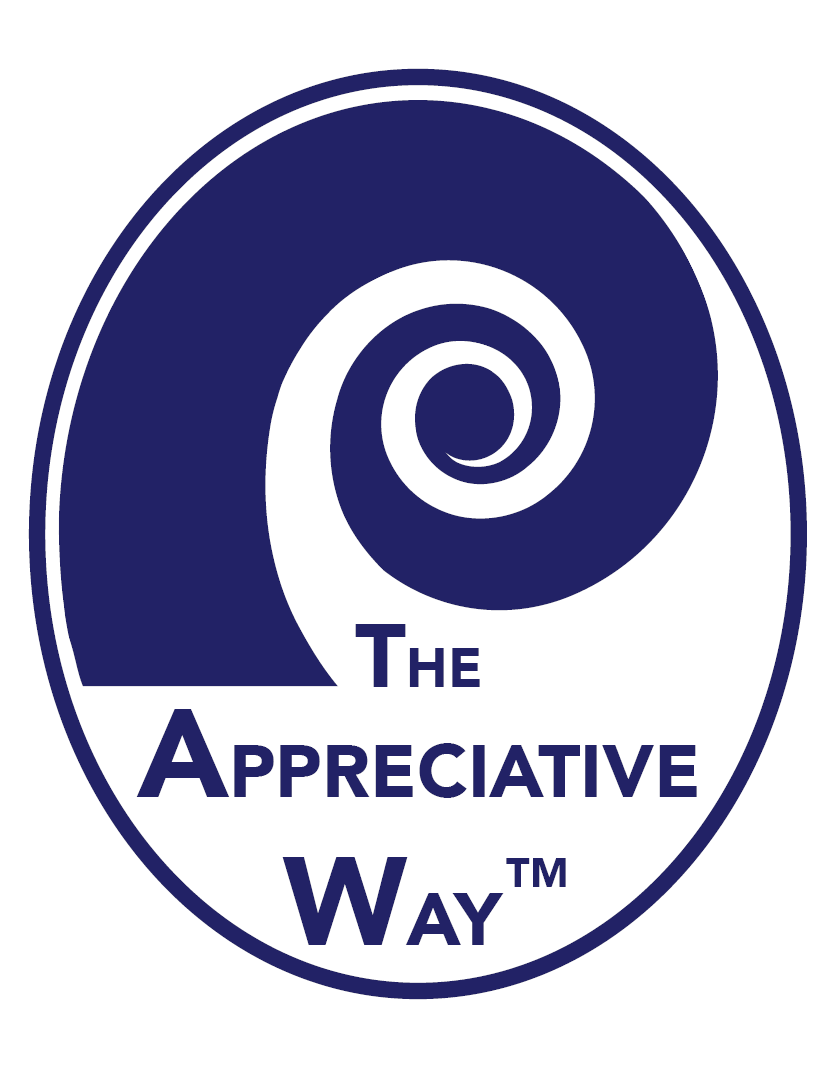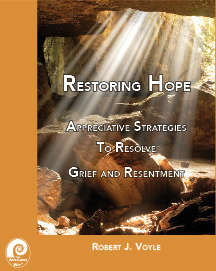

Restoring Hope
Practical Appreciative Inquiry based strategies to effectively resolve grief and resentment.
Welcome to Yes!3
Yes!3 is designed to help you
grow an appreciative culture
within your congregation by
helping parishioners create
a purpose centered life
in which they can say:
Yes! To God
Yes! To Their Neighbor
Yes! To Them Self
Stay Connected
Receive The Appreciative Way our Free Email Newsletter
and receive advance notice of future programs.
Privacy: We never rent, sell, or share your email.
Appreciative Inquiry and Theology
|
Understanding Appreciative Inquiry |
|
| View Training Schedule and Register for Training Programs |
In a nutshell: What did Jesus come for? Was it to give us less death or was it to give us life? Unfortunately, while most of our theology would say "life," most of our applied is "less death." Or we are working hard to have less of what we don't want. Appreciative Inquiry is fundamentally oriented to that which is giving us life and how we can do more of it. In a real sense the Appreciative Way is a perspective and set of tools to let us operationalize the Gospel of bringing life to people.
Appreciative Inquiry can be considered an incarnational and resurrection oriented philosophy and process. Appreciative Inquiry is incarnational in that it relies on a participative process in which the change agent becomes part of that which is being changed. Jesus the Redeemer did not stand as an expert to the side or above humanity rather he embraced humanity and became one of us. Likewise in AI we do not seek to apply some external wisdom to a system but to work from within the system to discover the system's wisdom and life giving properties.
Appreciative inquiry can also be considered resurrection oriented in that it seeks that which is life giving even in the midst of death. The Judeo-Christian experience is one of redemption. Of God bringing freedom out of slavery, of life out of death. From the social construction perspective that human experience is arbitrarily punctuated, appreciative inquiry can be used to place a comma rather than a period at the end of tragedy so that those involved can experience new life. It is interesting to note that crucifixion does not bring people together, rather it ultimately causes people to scatter and hide. Resurrection and its accompanying hope, on the other hand, brings people together and gives them a life giving purpose.
The scriptures are full of the exhortation to "behold", for example "Behold what manner of love the Father has given to us." Appreciative inquiry makes use of this type of beholding, or "right seeing" as the contemplative traditions teach. We are encouraged in scriptures to not only behold the goodness of God in its current expressions but also to behold a future, in which there will be no more death, or mourning, wailing or pain for the old order will pass away. It is from the vantage point of this future that we perceive our world and the world in which we live. And it is from the image of this future that we are inspired to freely follow Christ. Likewise in the life of congregations positive images of the things God has done in their life inspire positive images of what God can do in their future and how parishioners can share in the unfold of God's grace.
Similarly St. Paul tells us: "Finally brothers and sisters, whatever is true, whatever is honorable, whatever is just, whatever is pure, whatever is lovely, whatever is gracious, if there is any excellence and if there is anything worthy of praise, think about these tings. Keep on doing what you have learned and received and heard. Then the God of peace will be with you."
Philippians 4:8-9
A more detailed synthesis of Appreciative Inquiry and theology applied to the issue of creating change can be found at: Ensuring Change is a Blessing
Appreciative Inquiry and Theological reflection
Our monthy newsletter, Apprecative News, often contain theological reflections based in Appreciative Inquiry.
>> Go beyond positive to Life-Giving this Easter
>> Thinking about Lent, Sin, and Grace
>> Easter is about New Life, it is not about having less death.
>> See complete listing of reflections
Training in The Appreciative Way
All of our Coaching, Ministry and Leadership training programs are based on the Appreciative Way and reflect our integration of Appreciative Inquiry and Theological Reflection.
We offer a blend of residential intensives and teleconferences to train you to appreciatively use your gifts for the benefit of others.
What Participants Say
After 45 years in the pastoral ministry and attending three events led by Rob Voyle, I have finally learned a better way to help church leaders help themselves and the people they serve.
John Wilkerson, Director: Church Leadership Coaching & Consulting

